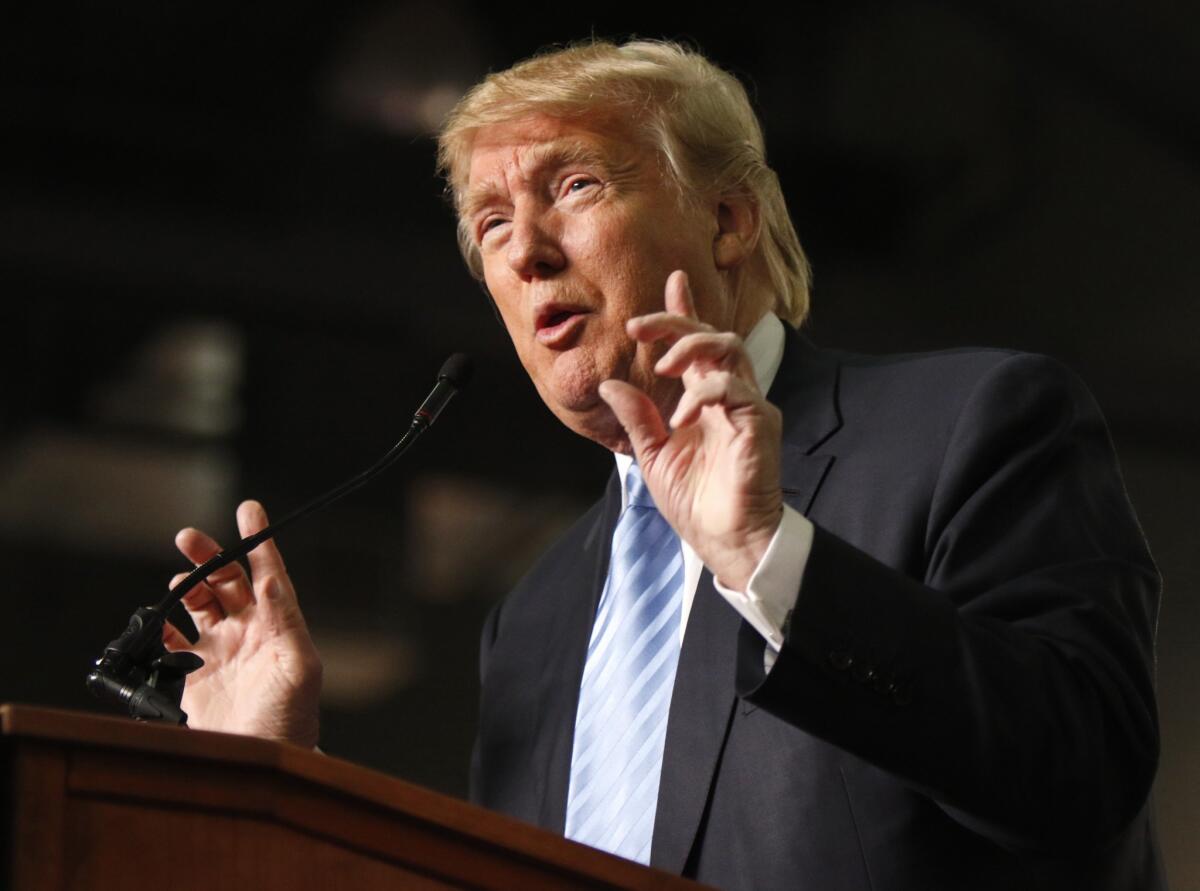Editorial: On brand, Trump throws America’s reputation in the trash to wink at war crimes

President Trump’s insistence on total rehabilitation for a Navy SEAL who was accused of war crimes illustrates several of Trump’s worst traits as a national leader: his contempt for norms, his compulsion to put himself at the center of every controversy and, most disturbing of all, his tolerance for misbehavior by those in uniform.
On Nov. 15, Trump restored the promotion of Eddie Gallagher, who had been convicted by a court-martial of posing in Iraq with the body of an Islamic State fighter. Gallagher was acquitted of the much more serious charges of killing the man, who was in U.S. custody, and of shooting civilians. On the same day, Trump pardoned two other service members: Clint Lorance, who had been convicted of murder for ordering his soldiers to fire on three unarmed Afghan men in July 2012, killing two, and Maj. Mathew Golsteyn, a former Green Beret accused of killing a suspected bomb maker during a 2010 deployment to Afghanistan.
Last week it emerged that Gallagher and other service members involved in his case would be subjected to further review by the Navy. As a consequence of that process, Gallagher could have been expelled from the SEALS and stripped of the coveted Trident pin worn proudly by members of the elite Sea, Air and Land teams.
That was a cue for Trump to again express support for Gallagher, whose cause has been championed by Fox News personalities. On Thursday the president tweeted: “The Navy will NOT be taking away Warfighter and Navy Seal Eddie Gallagher’s Trident Pin. This case was handled very badly from the beginning. Get back to business!”
For a while it seemed that the Navy would be allowed to proceed with a review despite Trump’s tweet. But on Monday Secretary of Defense Mark Esper said that Trump had directed him to ensure that Gallagher retained his Trident pin.
Meanwhile, Secretary of the Navy Richard V. Spencer has been dismissed, at least in part because of a dispute among him, Trump and Esper over Gallagher. Not surprisingly, each person involved offered a different story about why Spencer was fired.
Who is right about the specifics of Spencer’s departure is less important than what this episode says about Trump’s contempt for the orderly operation of the military justice system. Yes, he is the commander-in-chief and yes, the Constitution gives him the authority to “grant reprieves and pardons for offenses against the United States,” including crimes committed in wartime. But such power should be exercised with discretion and with a respect for due process.
Even more alarming is what Trump’s words and actions in these cases say about his tolerance for brutality by those who serve the nation in wartime. Last month, in reference to the Golsteyn case, Trump tweeted: “We train our boys to be killing machines, then prosecute them when they kill!” The implication was that any act of violence or cruelty, no matter how depraved or unjustified, must be excused.
Trump has made it clear that his natural instinct is to wink at barbarism so long as it is committed by “our side.” During the 2016 campaign, he declared that “torture works” and promised if elected to “bring back a hell of a lot worse than waterboarding.” Nor does he limit his approval of official violence to actions against terrorists or enemies on the battlefield. Who can forget his suggestion in a 2017 speech that officers shouldn’t be “too nice” in pushing suspects into a police car?
In his letter to Trump, Spencer wrote that the rule of law — even in wartime — is “what sets us apart from our adversaries.” Sadly, the commander-in-chief doesn’t see things that way.
More to Read
A cure for the common opinion
Get thought-provoking perspectives with our weekly newsletter.
You may occasionally receive promotional content from the Los Angeles Times.










